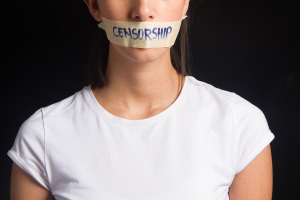'Lady A' the band, formerly Lady Antebellum, sues blues singer 'Lady A' after fallout

Grammy Award-winning country trio Lady A, formerly Lady Antebellum, said they're suing Seattle blues singer Lady A after talks between them broke down and the solo artist demanded they pay her $10 million to rebrand her name.
The band announced last month that they would be changing their name to Lady A due to the word antebellum's association with slavery in the south.
After their announcement, blues singer Anita White, who is black and has gone by the name of Lady A for over 20 years, publicly addressed the country band’s decision, raising concerns that it might have a negative impact on her own brand and name recognition.
On Wednesday, the band announced that they had filed a lawsuit against the solo singer after she demanded payment from the award-winning group. According to a copy of the lawsuit posted by Pitchfork, the trio is seeking to secure the rights to share the name Lady A, which they trademarked with the U.S. Patent and Trademark Office back in 2011. They also noted that they, too, have been known as Lady A by their fans for many years.
The lawsuit does not seek monetary damages from White, nor does it prevent her from performing under the same name, Lady A. The suit argues that the band “started using ‘Lady A’ as a source indicator for their goods and services as early as 2006 and 2007, adopting as an official brand a name their fans began associating with the Musical Group as they rose to popularity.”
“Today we are sad to share that our sincere hope to join together with Anita White in unity and common purpose has ended,” the band said in a statement. “She and her team have demanded a $10 million payment, so reluctantly we have come to the conclusion that we need to ask a court to affirm our right to continue to use the name Lady A, a trademark we have held for many years.”
The band said they also want to be able to register the name Lady A for live performances and streaming programming, according to the lawsuit.
After news of the lawsuit broke, White spoke to Vulture and provided some clarity on why she demanded that the band pay her $10 million. She explained that she encouraged the group to change their name to “Lady A The Band” because she is already running into issues verifying her name when uploading her new music to streaming services.
White said she would use $5 million to rebrand herself and give the rest to black charities.
“Five million dollars is nothing, and I’m actually worth more than that, regardless of what they think," White added. "But here we go again with another white person trying to take something from a black person, even though they say they’re trying to help. If you want to be an advocate or an ally, you help those who you’re oppressing. And that might require you to give up something because I am not going to be erased.”
The lawsuit further argues that up until this year, White had never challenged the band's use of the same name.
“Prior to 2020, White did not challenge, in any way, Plaintiffs’ open, obvious, and widespread nationwide and international use of the LADY A mark as a source indicator for Plaintiffs’ recorded, downloadable, and streaming music and videos, Plaintiffs’ live musical performances, or Plaintiffs’ sale of souvenir merchandise,” the suit states in part.
In a Rolling Stone interview, White responded to the band’s question regarding why she never contested their trademark of the name before now, saying: “How would I have thought to look at the trademark? Why would I have challenged them? They were going by Lady Antebellum before; they weren’t going by Lady A.”
“This is what kills me about white privilege,” said White. “Their advantages let them do whatever it is they want to do. They have people in their camp to go out and get these trademarks. I never had that. I managed myself, I booked myself, I put my brand name out there.”
Last month, the trio publicly announced they had come to an agreement with White. But according to White, the announcement was premature and she felt the band was attempting to "erase" her as an artist.
“When we learned that Ms. White had also been performing under the name Lady A, we had heartfelt discussions with her about how we can all come together and make something special and beautiful out of this moment. We never even entertained the idea that she shouldn’t also be able to use the name Lady A, and never will — today’s action doesn’t change that,” they continued in their statement.
“Instead, we shared our stories, listened to each other, prayed and spent hours on the phone and text writing a song about this experience together. We felt we had been brought together for a reason and saw this as living out the calling that brought us to make this change in the first place. We’re disappointed that we won’t be able to work together with Anita for that greater purpose.”
Lady A the singer told Newsday at the time that the band's plans for a collaboration and desire to coexist by using the same was not what she had agreed to.
“I’m not happy about [it] yet again after talking in good faith. … Their camp is trying to erase me ... Trust is important and I no longer trust them,” White said.
Despite having to take legal action, the country group said they will continue to stand with the fight against injustice.
“We’re still committed to educating ourselves, our children and doing our part to fight for the racial justice so desperately needed in our country and around the world. We’ve only taken the first small steps and will prioritize racial equality as a key pillar of the work of LadyAID, specifically leaning into supporting and empowering our youth,” the Lady A statement read.
It concluded by saying, “We hope Anita and the advisers she is now listening to will change their minds about their approach. We can do so much more together than in this dispute.”
The group took their stance against inequality to the next step and have set up LadyAID to make a donation to the Equal Justice Initiative.




























